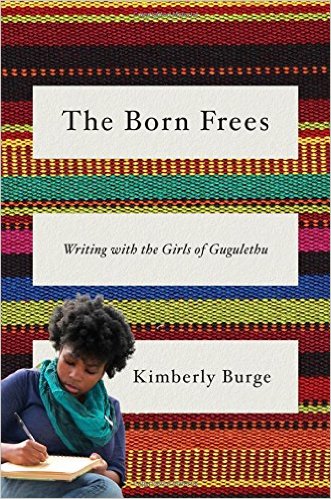Writing Lessons

As writers and marketers, we spend a lot of time at DeLaune and Associates thinking about the best ways to tell our clients’ stories. I was fascinated to read one writer’s story about teaching people who aren’t professional writers how to find their voices and express themselves. As in many experiences where you are leading others, it’s often the teacher who winds up learning as much as or more than the students.
Kimberly Burge went to South Africa in 2010 to lead a writing workshop for girls who are the first generation to be born without apartheid, the “born-frees” as they are known in South Africa. Burge isn’t a teacher by training, she has a MFA in nonfiction writing, and wanted to learn more about the “born-frees” in South Africa in order to write her first book.
Burge chose a community center in Gugulethu, a black township about 10 miles outside Cape Town, where many schools didn’t even have libraries. Every week for a year, anywhere from four to 22 girls would show up for a few hours of writing, reading their words out loud, and listening to their peers. Burge was touched by the honesty and wisdom these young women shared in their stories. Her lessons on how to be a better writer appeal to all of us – whether we make a living helping other people find the right words or just send emails and post blogs for our own personal entertainment.
- Listen. To tell someone else’s story, whether a marketing campaign or a biography, it’s always important to listen. What are the important steps in the journey? What are the words that are necessary to hear the other person’s voice?
- Honor the other person when writing their story. While this is especially true when writing about someone’s personal life, it’s also true when writing for a business. Understand the company’s mission statement, their purpose in generating the collateral material or ad, and what’s unique and valuable about that particular company and that specific project.
- Learn when to be a critic and when to be a champion, of your own work and others. In this day and age of anonymous comments on social media, it’s easy to express a critical opinion. While constructive criticism is healthy and can bring about a better product, it’s also good to celebrate the quirks and differences that make people and businesses unique and special. Learn to appreciate others as well as your own talents and skills.
- Find courage equal to that of your protagonist. While this lesson mainly applies to a personal narrative instead of writing about a business, this step also has application in the work world. It’s difficult to start a business, thrive during adverse economic times, and provide employment for others. Sometimes courage can be found in a company’s leaders who do the right thing. For example, there is a Chick-Fil-A franchise in Austin that shut down for six months of remodeling. The owner continued to pay his hourly employees during the remodel. No one would have questioned him telling them to find other jobs since his fast food restaurant was closed. But he chose to continue to pay the employees. And, when the store reopened, he gave each employee a raise.
- Help another find her voice and you just might find your own. In helping the South African girls find their own voices and tell their stories, Burge found her own voice and used that experience during the writing of her book. All of us learn from the people we interact with. As writers, each story we tell helps us become better at our craft.
by Amy Valentine

Leave a Reply